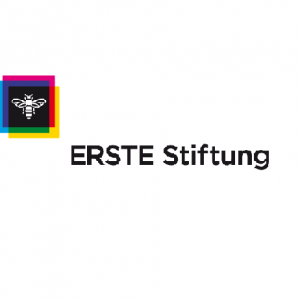
10 Feb European Café: In the Shadow of Wars
The following study was prepared by CEID experts based on the European Café event held on January 12, 2024. The guest of the discussion was Defence Minister Kristóf Szalay-Bobroviczky .The summary and recommendations were compiled based on the discussion and the statements of the participants but should in no way be considered as the official position of the guests. The European Café series is made possible with the support of Erste Stiftung.
In recent years, the decades-long national consensus on Hungary’s foreign policy has come under threat. The goal of our European Café series is to help establish a set of national minimums that transcend party politics, enabling us to work together once again for the future of our country.
While foreign policy values and goals—Hungary’s geopolitical orientation—have been the subject of heated debates among political parties for years, there was long-standing consensus in security policy. No major political force questioned Hungary’s Euro-Atlantic commitment. There was also a shared understanding that the framework of Hungarian security policy is defined by NATO membership and the country’s constructive role within the alliance. This consensus extended to Hungary’s security perceptions, as reflected in the country’s latest security strategy, which—aligned with its allies—identified China and Russia as the primary security threats.
The turning point came with Russia’s aggression against Ukraine. The responses to the war first cast doubt on Hungary’s commitment to its alliances externally, and later, increasingly within the country as well.
A New Approach to Security Challenges
As a guest at the European Café, Defense Minister Kristóf Szalay-Bobrovniczky presented a novel perspective on the situation. According to the minister, the Middle East poses a greater escalation threat than the Ukraine conflict and represents a potentially larger danger for Hungary. While Israel seeks to stabilize the situation, countries like Iraq and Iran are trying to exploit and escalate the conflict to advance their regional interests. The tensions in the Middle East have global repercussions, affecting major trade routes, jeopardizing Hungary’s economic supply security, and exacerbating migration risks.
Regarding the war in Ukraine, it was emphasized that Hungary has a fundamental interest in preventing Ukraine from suffering a military defeat. A democratic and sovereign Ukraine enhances Hungary’s security. Like other NATO member states, the Hungarian Defence Forces are continuously monitoring the conflict and adjusting military development based on battlefield experiences. The war has also highlighted the importance of drone capabilities, necessitating significant restructuring in terms of drone size, type, and deployment strategies.
Military Reform as a National Consensus
The discussion revealed that military reform could serve as a national minimum, forming the basis of broad social and political consensus. The minister reaffirmed that Hungary’s military development, operations, and security strategy are rooted in NATO membership, which remains unquestionable. Hungary’s commitment is further demonstrated by its defense spending exceeding 2% of GDP, with a remarkably high (40%) investment ratio in military development. While this level of investment may not be sustainable long-term, a development ratio above 20% is expected to be maintained.
Key Future Challenges: Cybersecurity and AI
It is certain that cybersecurity will be a key area of development in the coming years. A large-scale cyberwarfare is already underway, and countering cyberattacks will require an increasing number of highly skilled experts. Another strategic priority is the integration of artificial intelligence (AI), which could replace human labor in various military and security operations.
Sweden’s NATO Accession and Gripen Fighter Jets
The discussion also touched on Sweden’s NATO accession and Hungary’s Gripen fighter jet program. Since the number of countries using Gripen jets has drastically decreased, Sweden has a vested interest in ensuring Hungary continues to operate this model. The minister emphasized that the Gripen is a cost-effective and well-proven choice that perfectly aligns with Hungary’s size and ambitions.
Debate on Hungary’s Military Presence in Chad
A more contentious debate emerged regarding Hungary’s military mission in Chad. The minister argued that Hungary’s presence in Chad is a significant milestone in its military development and international engagement, demonstrating the country’s ability to independently sustain a military mission. However, many invited experts questioned whether Hungary possesses the necessary resources and expertise for such a deployment. Concerns were also raised about the effectiveness of a 200-soldier contingent in a distant country.
Recommendations
-
- Maintain defense spending at 2% of GDP consistently, possibly through legal mandates.
- Develop Hungary’s defense industry in coordination with European defense initiatives, ensuring diversified partnerships beyond German dominance (e.g., involving France).
- Future-oriented military developments that lay the foundation for 21st-century security challenges.
- Organize foreign military missions in collaboration with allies, reducing risks and enhancing mission security, particularly in regions where Hungary lacks traditional operational experience.
- Strengthen NATO relations, including through public communication, highlighting how Hungary’s Balkan peacekeeping roles alleviate NATO’s burden, allowing other members to focus more on supporting Ukraine.
- In the event of a Donald Trump victory in the U.S. elections, Hungary could leverage Orbán’s close ties with Trump to mediate NATO-related disputes, fostering mutual trust and serving as a bridge between Europe and a potential Republican administration.
The European Café series is supported by the ERSTE Foundation.

